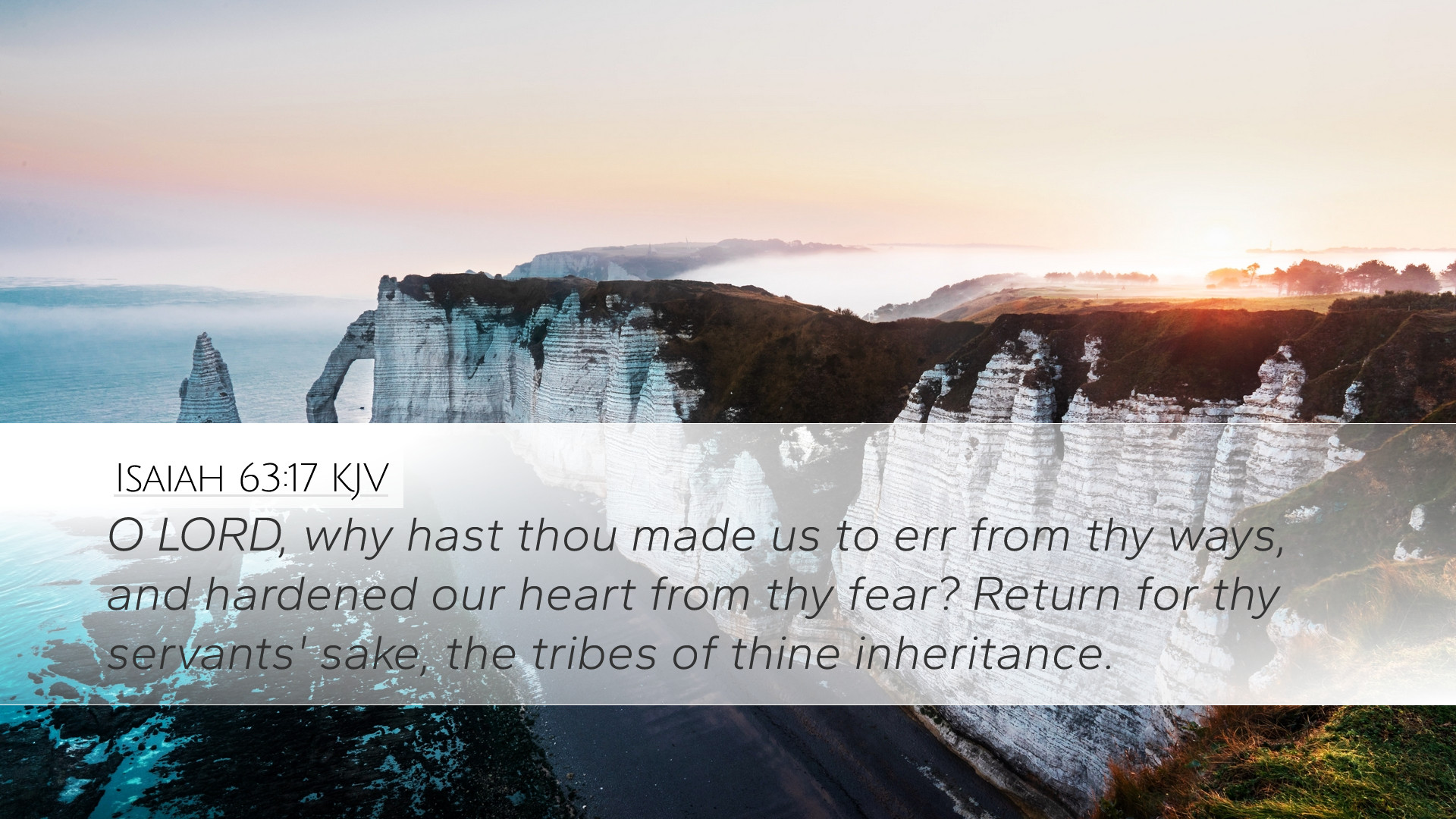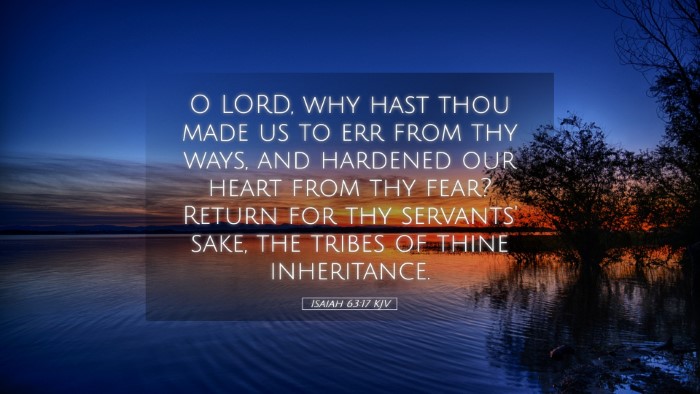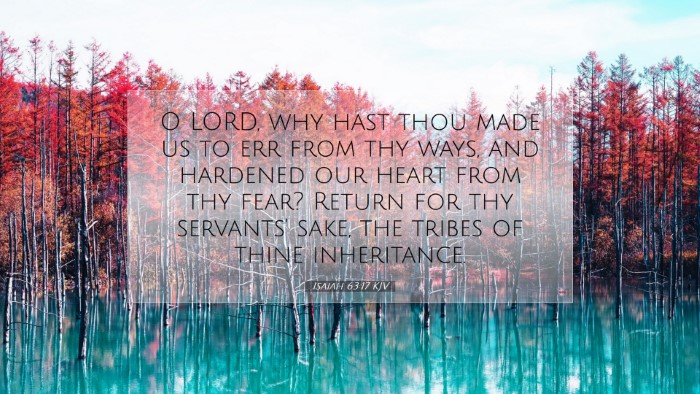Isaiah 63:17 - "O Lord, why do you make us wander from your ways and harden our hearts so that we do not fear you? Return for the sake of your servants, the tribes that are your inheritance."
This poignant verse from Isaiah captures the deep sense of longing and confusion of God’s people in the face of their spiritual exile and desolation. The verse reads as a sincere cry for understanding and restoration, reflecting a profound theological and emotional dilemma faced by the Israelites. A summarized commentary drawing from public domain sources reveals the complexity of human response to divine discipline, governance, and mercy.
Contextual Overview
Isaiah 63 is part of a larger oracle that encompasses the themes of judgement, redemption, and the character of God as both judge and savior. This chapter is a lament that highlights the tension between divine sovereignty and human frailty. The Israelites, in their exile, remember God’s past mercies while grappling with their current hardships, illustrating a deep yearning for restoration.
The Theological Implications
The verse poses a rhetorical inquiry directed towards God, reflecting the anguish felt by the people. This inquiry can be dissected into key theological themes:
- The Divine Sovereignty and Human Agency: The Israelites question why God leads them astray. This dilemma raises profound questions about the nature of divine guidance and human free will. Albert Barnes notes that the ‘wandering’ implies a deviation from the path of righteousness, possibly due to divine allowance for human choices.
- The Hardening of Hearts: The reference to a hardened heart suggests a state of spiritual insensitivity. Adam Clarke elaborates that this hardening can be a consequence of sin, resulting in a disconnection from the fear of the Lord. The hardening is both a divine act and a human response to continued transgression.
- The Plea for Restoration: The cry for God to ‘return’ signifies the people’s recognition of their need for divine intervention. Matthew Henry elaborates on this theme, emphasizing that the appeal for God’s return is rooted in the covenant relationship between God and His people. They implore Him to act as the one true protector of Israel’s inheritance.
- The Concept of Fear: The plea to have ‘hearts that fear’ the Lord underscores the importance of reverence in the relationship between God and His people. This fear is not one of terror but one of awe, respect, and understanding of God’s holiness. Clarke suggests that true fear of God leads to obedience, which is crucial for restoration.
Reflections on Human Experience
This verse speaks to the broader human experience of feeling abandoned or lost in the spiritual journey. It resonates deeply with the struggles of believers who encounter periods of desolation or seeming wilderness. The lament illustrates a universal struggle to reconcile God's promises with present realities.
Pastoral Application
-
Encouragement in Times of Distress:
Pastors can derive pastoral insights in comforting those experiencing spiritual confusion or distress. Reminding congregants that their cries resonate with the faithful of old can foster a sense of connection and encouragement.
-
Teaching Divine Patience:
Teach on God's unparalleled patience and grace. Even amidst their hardness of heart, the Israelites’ ability to cry out signifies the hope available through repentance and divine mercy.
-
Emphasizing the Need for Return:
Kanonic texts like this can be employed to stress the need for a return to God. Emphasizing the importance of seeking God’s face and ways in a world filled with distractions is a pressing need in contemporary ministry.
Concluding Thoughts
Isaiah 63:17 encapsulates a cry that is both ancient and relevant, illustrating the continuum of human longing for divine presence and guidance. It challenges modern believers to reflect on their paths, acknowledge their human frailty, and actively seek the return to a fervent relationship with God. The collective insights from historical commentaries provide a framework for understanding the dynamics of divine-human interaction and the enduring nature of God's covenant with His people.


